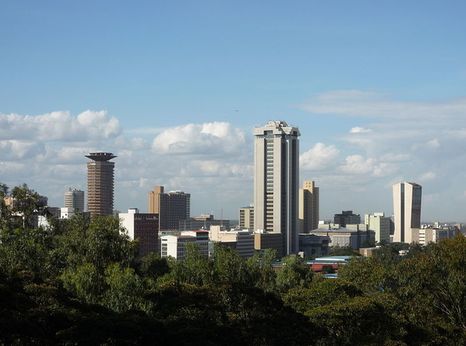Evicted residents vulnerable to Covid-19

Since 1996, residents from Kariobangi Sewerage Farmers Slum have been paying the Nairobi County Government land rates and have title deeds that establish their ownership of the land that they are living on. The residents have records of their land tax payments in the form of receipts dating back to 1996. In April 2019, the residents were issued with a notice of eviction letter by the Cabinet Secretary of Lands and the Nairobi County government. Following this, there was no further information from the government about the eviction, compensation or resettlement.
In response to the verbal orders to vacate, on 3 May 2020, the Environment and Lands Court certified the case filed by Kariobangi Sewerage Farmers Self Group as urgent and scheduled a hearing on Thursday 7 May 2020. The court also issued an interim order to halt the evictions until the matter was heard on 7 May.
The Nairobi City Water and Sewerage Company Ltd carried out the forced evictions in a bid to reclaim the land from the residents. They were accompanied by the Deputy County Commissioner (DCC), the area chief and administrative police. The Nairobi City Water and Sewerage Company Ltd (NCWSC) was incorporated in December 2003 under the Companies Act cap 486 and is a wholly-owned subsidiary of Nairobi City County.
The right to adequate housing has been entrenched as a justiciable right in the Constitution of Kenya. Article 43(1)(b), provides that ‘every person has the right to accessible and adequate housing and reasonable standards of sanitation’. Kenya is obliged under a range of human rights treaties, including the International Covenant on Economic, Social and Cultural Rights, the International Covenant on Civil and Political Rights and the African Charter on Human and Peoples’ Rights, to refrain from and prevent forced evictions. The UN Committee on Economic, Social and Cultural Rights has emphasized that evictions may be carried out only as a last resort, once all feasible alternatives have been explored and only after appropriate procedural and legal safeguards are in place.
These include genuine consultation with the people affected, adequate and reasonable notice, adequate alternative housing and compensation for all losses, safeguards on how evictions are carried out, and access to legal remedies and procedures, including access to legal aid where necessary. Governments are required to ensure that no one is rendered homeless or vulnerable to other human rights violations as a consequence of an eviction. International human rights standards also state that even where evictions are deemed to be justified, states must ensure that they put in place all safeguards and due process requirements.